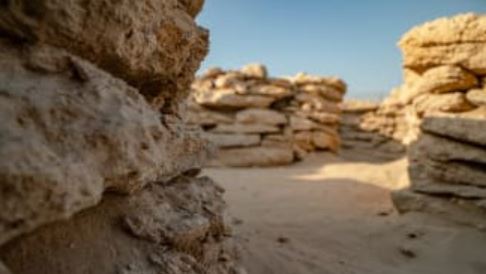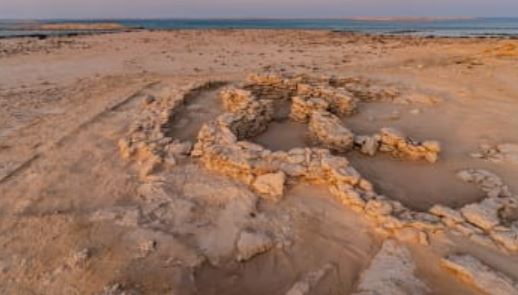8,500-year-old Buildings Discovered In Abu Dhabi
Posted by Amarachi on Fri 18th Feb, 2022 - tori.ng8,500-year-old Buildings Discovered In Abu Dhabi
Archaeologists from the Department of Culture and Tourism – Abu Dhabi (DCT Abu Dhabi) have unearthed evidence of the earliest known buildings in the UAE and the middle east region dating back more than 8,500 years.
The discovery by Archeologists on the island of Ghagha, west of Abu Dhabi city, revealed stone structures offering further compelling history of the UAE.
The Department of culture and tourism Abu Dhabi archaeologists say the most extraordinary discovery was revealed by carbon-14 analysis of charcoal fragments, which indicates the structures are at least 8,500 years old breaking the previous record for the earliest known structures built in the UAE, which were discovered on Marawah Island.
It was previously thought that long-distance maritime trade routes, which developed during the Neolithic period, preempted fmsettlements in the area, but the latest discoveries prove that Neolithic settlements existed prior to the onset of trade, which means it was local economic and environmental conditions that led to the first settled life in what is now the United Arab Emirates.
Mohamed Al Mubarak, Chairman of DCT Abu Dhabi, said: “These archaeological finds have shown that people were settling and building homes here 8,500 years ago. The discoveries on Ghagha island highlight that the characteristics of innovation, sustainability and resilience have been part of the DNA of the inhabitants of this region for thousands of years. The finds reinforce an appreciation of history, as well as the deep cultural connections between the people of the UAE and the sea. We are also reminded that there is still much to discover across the Emirate of Abu Dhabi, and that it is vitally important we continue working to discover, preserve and protect our invaluable heritage for current and future generations to learn more about our ancestral past.”
The structures that have been uncovered are simple round rooms, the walls of which are made from stone and preserved to nearly one metre in height. The rooms were likely houses for a small community who may have lived on the island year-round. Hundreds of artefacts were found in the rooms, including finely worked stone arrowheads that would have been used for hunting.
How long the settlement existed is unknown by Archeologists, but after it was abandoned, it apparently remained an important part of the cultural landscape, as nearly 5,000 years ago a person was buried in the ruins of the structures.


















































